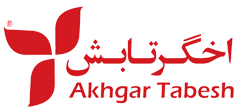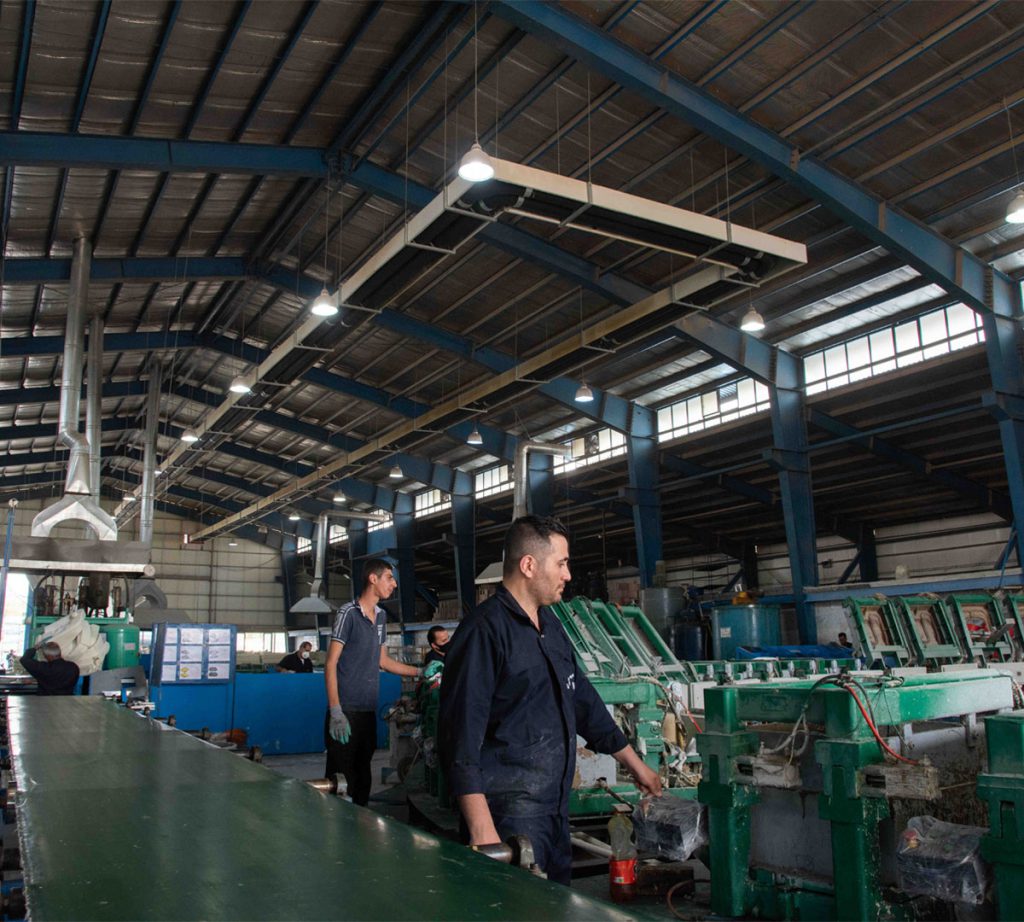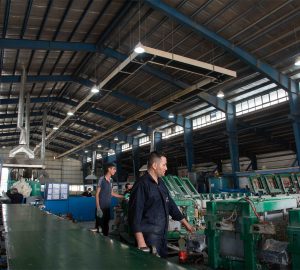What is a radiant heating system?
The general pattern of radiant heating is derived from nature and sunlight. In radiation heating, unlike the convection heating pattern, the heat exchange with the environment is mainly done through radiation and more than 50% of the energy is transferred in this way. Installation at height and heat on the floor are the most important features of radiant heating systems.
In conventional heating systems that work in a convective manner, the heat is mostly concentrated under the roof, and the surfaces close to the ground and the staff’s place of work will not have the right temperature. As a result, the energy loss through the roof is very high.
Due to the lower density of hot air compared to cold air and as a result of the accumulation of hot air under the ceiling, it is not logical to use the convection model in halls with a ceiling height of 2.5 meters and more, and only the radiant heating model meets the need for uniform and optimal heating. be
But the heat is not absorbed by the ambient air through radiation and the heat loss due to air exchange is very small. The possibility of zoning and regional control in the radiant heating system and the high flexibility of this system creates the possibility of heating in selected areas according to the need. The intensity is reduced and it is very effective in improving the health status of the complex
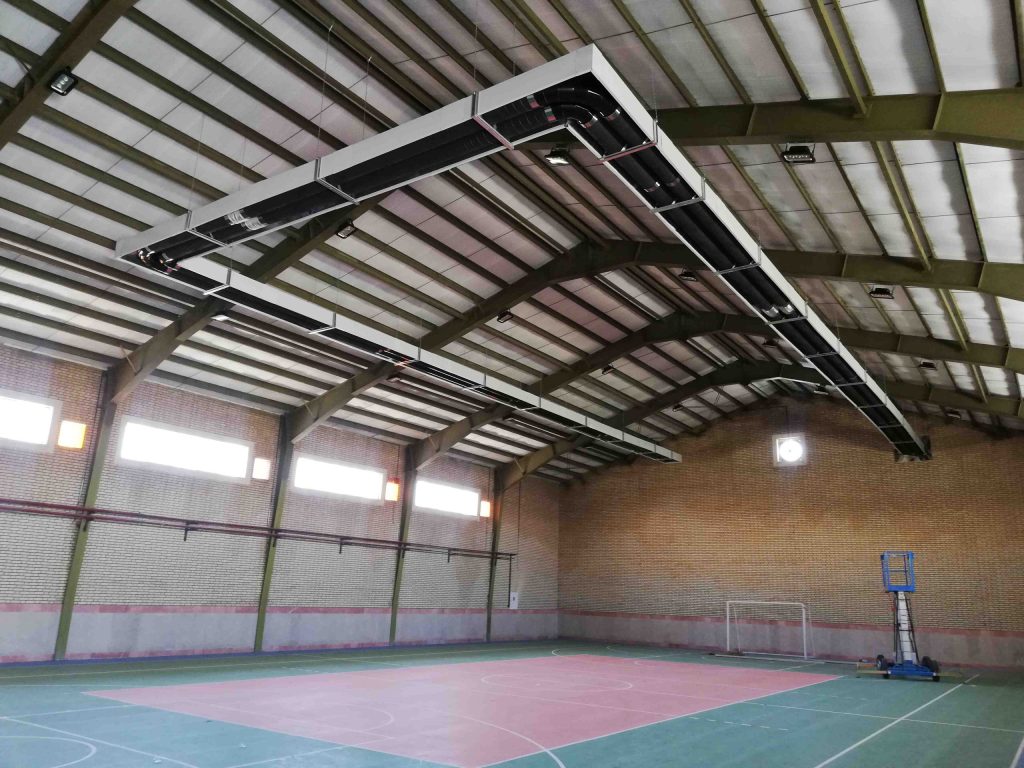
What are the advantages of radiant heating?
Among the advantages of the radiant heating system, the following can be mentioned:
Reduction of fuel consumption between 35 and 70%
Reduce electricity consumption
No need for a central motor home
high efficiency
Not occupying useful work space
Outdoor heating place
Creating different heat zones
The possibility of heating a small part of a large space
No need for air circulation for temperature uniformity
No need for intermediary fluid
Clean heat production
Being silent while working
Pleasant warmth with fresh air inhalation
Rapid heating and cooling
Heat concentration on the hall floor
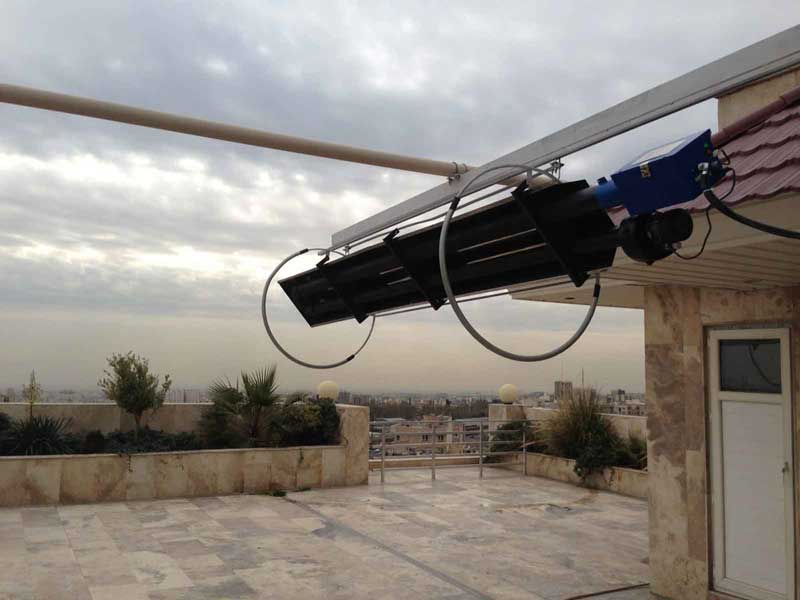
Comparison of radiant heating system with traditional heating systems
1.The feeling of comfort and the same temperature comfort
At an air temperature of 16 degrees Celsius, the average radiant temperature of the surfaces is about 24 degrees Celsius, and radiant heating provides comfort for the residents at a temperature of 20 degrees Celsius.
While in order to meet the same conditions in traditional systems, the air temperature should be increased up to 20 degrees Celsius. Therefore, the temperature of air heaters should be much higher.
2.The thermal medium of not placing air in the radiant heating system
Radiant heat transfer does not need an intermediate medium.
The possibility of heating people without the intervention of air has many advantages, such as reducing the temperature gradient between the floor and the ceiling of the hall, the speed of heating (and no need for long heating), the absence of excess air circulation in the hall, and the reduction of expenses for transferring the intermediate fluid and air distribution from It is considered the most important of these features.
3.Less heat loss
The usual amounts of heat loss in hot air systems are as follows:
- Chimney heat losses (10-20 percent)
- Heat loss of equipment inside the engine house (2-6 percent)
- Transfer of hot water or steam from the engine room to the hall (20-50 percent)
- Fluid leakage losses and water replacement (1-3%)
In total, these cases cause 18-49% heat loss, if there is no such energy loss in radiant heating systems due to the removal of the house engine.
Radiant heating systems are the best option for heating industries, warehouses, repair shops, poultry farms, greenhouses and sports spaces. At Akhgar Tabash, we are proud to produce radiant heating products according to Iran’s national standard as well as European CE to provide the best way to heat and pre-heat your environment.
If you have any questions or need advice, you can contact our experts.
